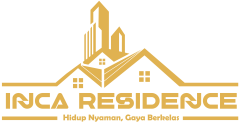In the complex ecosystem of residential real estate, property management serves as the operational backbone that supports and enhances the value of housing investments. While often operating behind the scenes, effective property management is the differentiating factor between properties that maintain or increase in value and those that experience deterioration and depreciation. The profession encompasses far more than simply collecting rent or addressing maintenance issues—it represents a multifaceted discipline that balances the interests of property owners, the needs of residents, and the long-term preservation of physical assets.
Property management has evolved considerably over the decades, adapting to technological advances, shifting housing regulations, economic fluctuations, and changing resident expectations. According to historical housing research, the formalization of property management as a distinct profession began primarily in the early 20th century, developing alongside the growth of urban rental housing markets and multi-family dwelling construction.
Today, professional property management has become increasingly specialized, with practitioners developing expertise in particular types of residential settings, from single-family homes to luxury high-rises, student housing to senior living communities. This specialization reflects the growing complexity of the housing market and the diverse needs of both property owners and residents in different residential contexts.
The Comprehensive Scope of Property Management Functions

Financial Stewardship and Asset Optimization
At its core, property management involves the financial oversight of a real estate asset, with the goal of maximizing returns while preserving value. This encompasses:
Revenue Management
- Establishing market-appropriate rental rates through competitive analysis
- Implementing strategic rent adjustment schedules
- Minimizing vacancy periods through efficient turnover processes
- Optimizing additional revenue streams (parking, storage, amenity fees)
- Ensuring timely rent collection and payment processing
Expense Control and Budgeting
- Developing annual operating budgets with projected income and expenses
- Negotiating favorable vendor contracts for regular services
- Implementing preventative maintenance to avoid costly emergency repairs
- Tracking all expenses against budgeted allocations
- Providing detailed financial reporting to property owners
Investment Performance Analysis
- Calculating key performance indicators such as ROI, cap rate, and cash-on-cash return
- Benchmarking property performance against comparable properties
- Identifying opportunities for value-add improvements
- Advising owners on refinancing opportunities when advantageous
- Developing capital improvement plans to enhance long-term value
For property owners interested in optimizing their financing structure, understanding mortgage options is crucial to maximizing returns. Learn more about financing options for your property investment in our comprehensive guide to Mortgage Basics.
Physical Asset Management
The preservation and enhancement of the physical property represents another crucial dimension of property management:
Routine Maintenance
- Scheduling regular inspections of building systems and components
- Implementing preventative maintenance programs for major systems (HVAC, plumbing, electrical)
- Coordinating landscaping, snow removal, and exterior upkeep
- Managing cleaning schedules for common areas and shared spaces
- Conducting regular property walk-throughs to identify emerging issues
Repair Coordination
- Establishing efficient maintenance request processes for Residence
- Prioritizing repair requests based on urgency and impact
- Building relationships with reliable service providers and contractors
- Ensuring quality control on completed work
- Maintaining detailed records of all repairs and improvements
Capital Improvements and Renovations
- Identifying strategic upgrades to maintain competitiveness
- Planning and budgeting for major system replacements
- Coordinating renovation projects during optimal timing windows
- Supervising contractors during major improvement projects
- Ensuring compliance with building codes and regulations during improvements
Emergency Response
- Developing comprehensive emergency response protocols
- Maintaining 24/7 availability for critical situations
- Coordinating response to natural disasters, fire, flood, or other emergencies
- Implementing temporary solutions to maintain habitability when possible
- Documenting incidents thoroughly for insurance purposes
Resident Relations and Community Management
Perhaps the most visible aspect of property management involves the direct interaction with residents:
Resident Acquisition
- Marketing available units through appropriate channels
- Conducting property showings and virtual tours
- Screening applicants through credit, background, and reference checks
- Ensuring fair housing compliance throughout the application process
- Executing lease agreements with clear terms and conditions
Move-In and Move-Out Processes
- Conducting detailed property condition documentation
- Orienting new residents to the property and its amenities
- Managing security deposit collection and processing
- Performing thorough move-out inspections
- Handling security deposit reconciliation and refunds according to legal requirements
Communication and Conflict Resolution
- Maintaining regular communication channels with residents
- Responding promptly to inquiries and concerns
- Mediating conflicts between residents when necessary
- Enforcing community rules and lease terms fairly and consistently
- Building a positive community culture through appropriate engagement
Retention Strategies
- Implementing resident satisfaction surveys and feedback mechanisms
- Developing renewal incentives for valued residents
- Creating community events and engagement opportunities
- Addressing issues promptly to maintain resident satisfaction
- Building loyalty through exceptional service and responsiveness
Regulatory Compliance and Risk Management
An increasingly critical component of property management involves navigating complex legal and regulatory requirements:
Legal Compliance
- Staying current with federal, state, and local housing laws
- Ensuring fair housing compliance in all resident interactions
- Maintaining proper licensing and certifications for management activities
- Adhering to all health and safety regulations
- Implementing legally compliant screening and selection processes
Risk Mitigation
- Maintaining appropriate insurance coverage for the property
- Conducting regular safety inspections and addressing hazards
- Implementing security measures to protect residents and assets
- Documenting all significant actions, communications, and decisions
- Developing crisis management and business continuity plans
Environmental Responsibility
- Implementing energy efficiency improvements where feasible
- Managing waste disposal and recycling programs
- Addressing environmental hazards such as lead, asbestos, or mold
- Adopting sustainable practices in property operations
- Complying with environmental regulations and reporting requirements
Technological Integration in Modern Property Management
The property management profession has been transformed by technological advances that enhance efficiency and service:
Property Management Software
- Integrated platforms for rent collection, maintenance requests, and communication
- Accounting and financial reporting systems
- Lease and document management solutions
- Resident portals for convenient service access
- Owner portals for real-time performance monitoring
Smart Building Technology
- Automated systems for HVAC management and energy optimization
- Keyless entry and enhanced security systems
- IoT sensors for early detection of maintenance issues
- Smart home features as amenities for residents
- Remote monitoring capabilities for building systems
Data Analytics and Business Intelligence
- Market analysis tools for competitive positioning
- Predictive maintenance algorithms to prevent system failures
- Performance benchmarking across comparable properties
- Resident behavior analysis for improved service delivery
- Optimization models for pricing and operational decisions
The Evolving Role of Property Managers
Today’s property managers function as multidisciplinary professionals whose role continues to expand:
From Caretaker to Strategic Asset Manager
The property manager’s function has evolved from basic caretaking to strategic asset management, requiring sophisticated business acumen alongside practical maintenance knowledge. Modern property managers are increasingly expected to provide investment insights, market analysis, and long-term value enhancement strategies.
Customer Experience Focus
As resident expectations increase, property managers have become experience designers who create environments that attract and retain residents. This shift from purely transactional relationships to experience-centered management requires enhanced interpersonal skills and service orientation.
Community Building
Property managers increasingly recognize their role in fostering healthy residential communities, whether in apartment buildings or single-family home neighborhoods. This community development function contributes significantly to resident satisfaction, retention, and property value preservation.
Sustainability Leadership
As environmental concerns become more prominent, property managers often lead sustainability initiatives, balancing ecological responsibility with financial performance through energy efficiency improvements, waste reduction, and sustainable operations.
The Value Proposition of Professional Property Management
The investment in professional property management delivers substantial benefits across multiple dimensions:
For Property Owners
- Financial optimization: Maximized returns through effective revenue management and cost control
- Time liberation: Freedom from day-to-day operational responsibilities
- Risk reduction: Professional compliance with legal requirements and risk management practices
- Value preservation: Consistent maintenance and improvement of the physical asset
- Market adaptation: Strategic positioning of the property within changing market conditions
Residents
- Enhanced living experience: Well-maintained living environments with responsive service
- Clarity and consistency: Professional handling of lease terms and community standards
- Convenience: Streamlined processes for payments, maintenance requests, and communications
- Community quality: Careful screening of new residents and consistent rule enforcement
- Problem resolution: Qualified professionals available to address concerns and emergencies
Communities
- Neighborhood stabilization: Well-managed properties contribute to overall neighborhood quality
- Value maintenance: Professional management helps preserve property values throughout the area
- Safety and security: Proper oversight reduces risks and enhances community safety
- Resource stewardship: Responsible management of environmental impact and resource utilization
- Economic contribution: Well-operated properties support local economic activity and tax base
The Future of Property Management
As the residential real estate landscape continues to evolve, several trends are shaping the future of property management:
Integration of Artificial Intelligence
AI-powered tools are increasingly handling routine tasks such as maintenance scheduling, lease renewals, and even applicant screening, allowing human managers to focus on complex decision-making and relationship building.
Experience-Centered Design
Properties are increasingly designed and managed around resident experience journeys, with amenities, services, and community features carefully orchestrated to meet lifestyle expectations.
Flexibility and Adaptability
The growing demand for flexible living arrangements is driving innovations in lease structures, space utilization, and service offerings, requiring property managers to develop more adaptable approaches.
Health and Wellness Focus
Post-pandemic awareness has accelerated the integration of health and wellness features in residential properties, from enhanced ventilation systems to wellness-oriented amenities and programming.
Data-Driven Operations
The collection and analysis of operational data is allowing for increasingly sophisticated optimization of property performance, from predictive maintenance to dynamic pricing models.
Conclusion: The Indispensable Role of Effective Property Management
In an era of increasing property values and rising resident expectations, professional property management has never been more essential to the successful operation of residential real estate. The multifaceted nature of the discipline—combining financial acumen, operational expertise, interpersonal skills, and strategic vision—creates significant value for property owners while enhancing the living experience of residents.
As the profession continues to evolve, embracing technological innovation while maintaining the human connection at the heart of residential communities, property management will remain the critical factor in preserving and enhancing the value of residential spaces. Whether for individual investors managing a small portfolio or institutional owners overseeing large-scale residential developments, professional property management provides the expertise, systems, and oversight necessary to optimize both current returns and long-term value appreciation.




